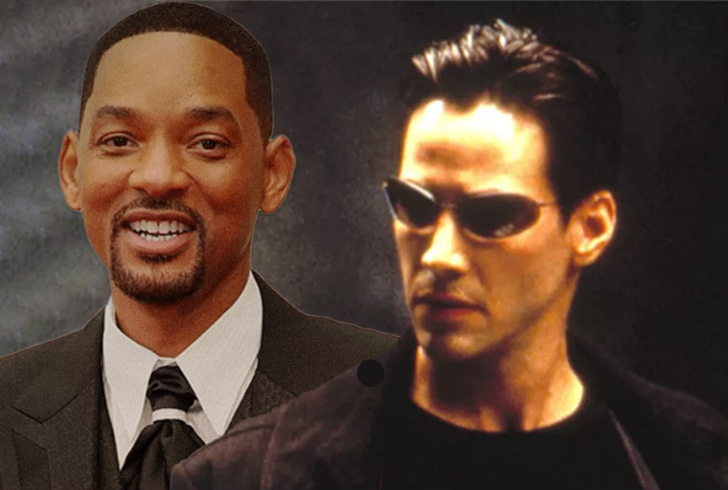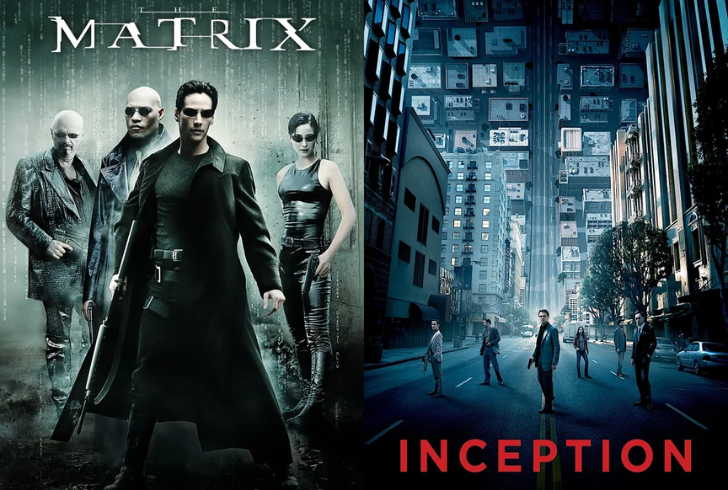Will Smith made news recently when he revealed that he declined the lead part in the popular movie "Inception."
Speaking with Kiss Xtra, the actor explained why the opportunity didn’t feel right to him at the time. He stated, "I didn't understand 'Inception,' which Chris Nolan brought me first. I’ve never said that out loud. However, now that I think about it, such alternate reality films don't make a good impression. But it still hurts.”
His statement instantly reignited the long-standing curiosity around his missed roles, especially since “Inception” went on to become one of the most talked-about and financially successful films of its time. The film, which starred Leonardo DiCaprio and was directed by Christopher Nolan, made over $839 million worldwide.
Interestingly, Brad Pitt was Nolan’s original pick before passing, which then opened the door for Smith.
A History of Career-Altering Passes

Instagram | @filmrefined | Smith's choice to forgo "Inception" adds to his notable list of rejected iconic films.
Smith’s decision to skip “Inception” joins a small but impactful list of iconic films he passed on. Most notably, he also turned down the role of Neo in “The Matrix”. That part eventually went to Keanu Reeves, who helped turn the film into a genre-defining franchise.
Smith said that it was very tough to decline "The Matrix": "It hurts too much to discuss."
Back in 2019, Smith uploaded a YouTube video explaining his choice. According to him, the Wachowskis’ pitch focused heavily on their vision for filming techniques rather than the plot itself.
He recalled, “We’re thinking like… you’re in a fight. You jump. Now, imagine if you could stop jumping in the middle of the jump. Then people could see 360 degrees around you while you’re frozen. That’s what we want to invent.” He couldn’t connect with that vision and ultimately walked away.
Another Turn-Down
Smith also declined the lead role in Quentin Tarantino’s “Django Unchained”, which later went to Jamie Foxx. He revealed to GQ that the project didn’t match his personal creative direction. While he admitted the story concept was “perfect,” he felt it focused too much on revenge. He clarified: “I wanted to make that movie so badly. But for me, it had to be a love story, not a vengeance story. Quentin and I couldn’t see eye to eye on that.”
His reasoning shows that his decision wasn’t about the character’s strength or complexity but rather the story’s emotional tone. Even though “Django Unchained” received critical acclaim and Oscar attention, Smith stood by his viewpoint.
Why These Missed Opportunities Still Matter

Image by r/moviecritic on reddit | Will Smith’s choice to skip "The Matrix" and "Inception" still shapes how fans see his career.
Turning down a role isn’t rare in Hollywood. However, when the films turn into cultural milestones, those decisions can define parts of an actor’s legacy. Smith’s transparency on this topic brings attention not only to what could have been but also to how creative alignment shapes decision-making in entertainment.
His honesty also reveals how scripts that rely on complex, layered storytelling, like “Inception” or “The Matrix,” may not pitch well verbally. Yet once brought to life visually, they resonate with audiences on a global scale.
The Changing Narrative Around Missed Roles
Will Smith’s recent candid admission about passing on a major role offers a rare and honest perspective on the realities of an actor’s journey. Rather than hiding behind excuses, Smith highlights that missed opportunities don’t always stem from poor choices but sometimes from creative differences or uncertainty.
While many fans idealize casting decisions, his reflection adds a grounded sense of realism, showing that even successful actors face moments of doubt.
For aspiring artists, Smith’s story underscores an important truth: it’s okay to miss out on big projects as long as decisions align with personal values. Not every role is meant for everyone, and success can still come after stepping away from a hit.
His openness not only humanizes the experience but also enriches his legacy, reminding us that the path to success isn’t always straightforward.
